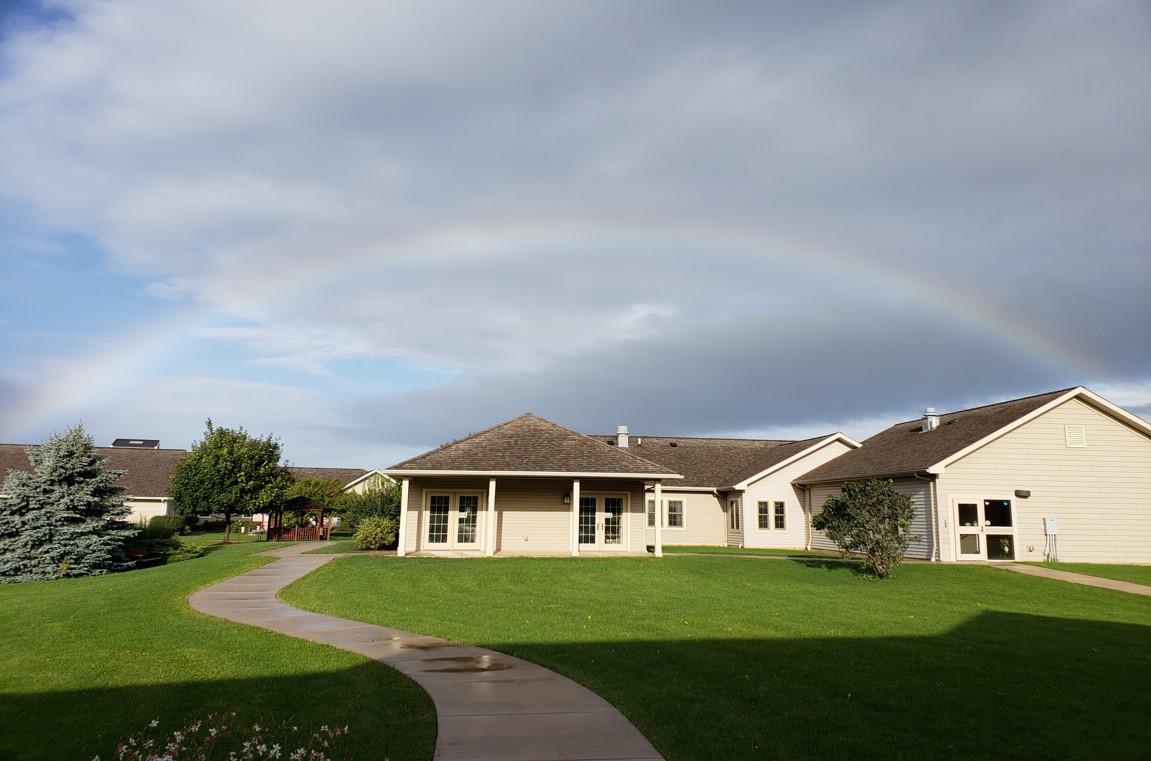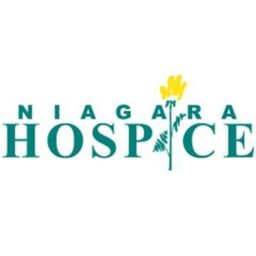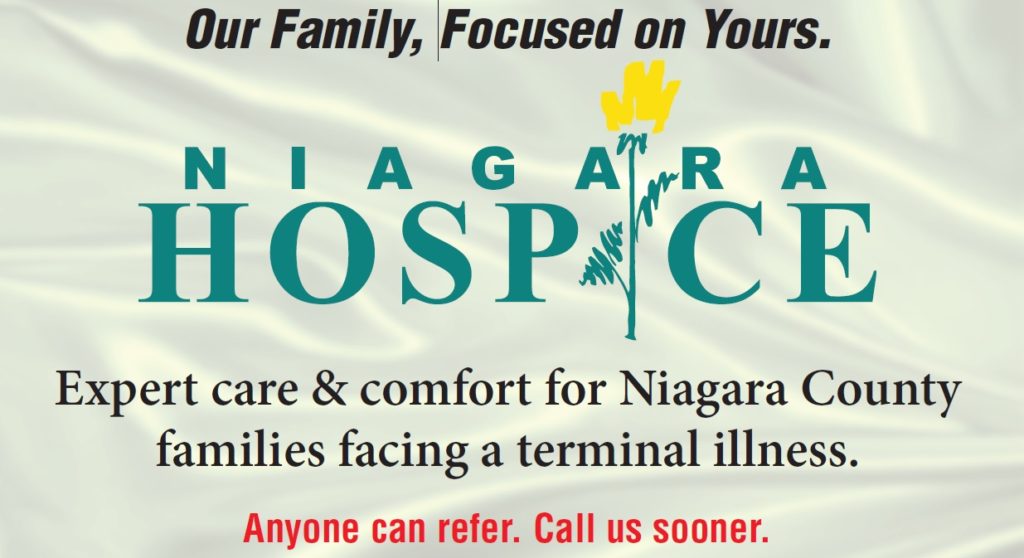Frequently Asked Questions
Specializing in symptom management & comfort during end-of-life care.
Anyone can make a referral by calling 716-439-4417.
We are the only ACHC accredited hospice in Western New York.

Click any of the Frequently Asked Questions to view the answer.
Hospice is a way of caring for patients with end-of-life illnesses by supporting their family and loved ones through the illness and dying process. Our goal is to help patients live as fully and as comfortably as possible, and provide their caregivers and loved ones the instruction and support they need. This is achieved by addressing the physical, emotional and spiritual needs of the patient and the family. Hospice treats the person, not the disease.
Both share a number of convictions:
- Care, not cure
- Considers the patient and the family as a single unit
- Emphasizes dignity, quality of life
- Encourages patients and family to participate in the decision making process
Palliative care is offered earlier in the illness and treats symptoms more aggressively – often employing medical treatments to prolong life. The Pathways Palliative Care program focuses on symptom management and enhancing quality of life. It can be provided at any point during an illness. Palliative care is provided in patients’ homes, assisted living facilities, ambulatory clinics or at other support services.
For information and referrals to Pathways Palliative Care program, click here.
Hospice care begins later when a terminal diagnosis of approximately 6 months or less has been made. It provides care where the patient lives, and keeps the patient as pain and symptom-free as possible with an emphasis on quality of life. Many hospice patients live beyond six months due to the extra supports and expertise the hospice team provides.
The patient must have a life-limiting/terminal illness with a prognosis of approximately six months or less, if the disease runs its normal course as stated by a patient’s physician and the hospice medical director. This is determined by Medicare medical guidelines. For patients who are strictly Medicaid recipients, New York State provides for up to 12 months of care and support for a terminal diagnosis.
The person’s place of residence must be in Niagara County to receive services from Niagara Hospice; they may live with their caregiver who resides in Niagara County or in a contracted assisted living or skilled nursing facility, or an adult home.
The patient needs to elect (choose) the hospice benefit by signing an Election of Benefits form.
No. Hospice serves persons of any age and with any illness. Some of the illnesses that hospice patients have include heart disease, COPD, CHF, Lou Gehrig’s disease, cirrhosis, emphysema, kidney disease, cancer, AIDS, Alzheimer’s and others. Hospice care is appropriate for:
- Advanced stage illness with a diagnosis of approximately six months or less to live if the disease runs its normal course
- Reoccurrence or spread of disease
- When curative treatment is no longer appropriate or the patient no longer wishes to pursue a curative treatment plan
The majority of hospice patients are cared for in the comfort of their own home or their caregiver’s home, but they may also receive care in skilled nursing or adult care homes, in the hospital, at Niagara Hospice House in Lockport, David’s Path at Schoellkopf Health Center in Niagara Falls or Jeanne’s House at Northgate Health Care Facility in North Tonawanda. Hospice care is provided by an interdisciplinary team of professionals including doctors, pharmacists, nurses, social workers, spiritual care coordinators, massage and music therapists, hospice aides, homemakers and volunteers who work with the patient, the family, and the patient’s primary physician. Bereavement counselors are available to family members following the death of their loved one.
When a person or their loved one faces the challenge of a serious illness, it’s time to find out about hospice services so an informed decision can be made regarding choices for the future. Having all the appropriate information about hospice will help the patient and their family to understand the role Niagara Hospice might play if the disease continues to advance. Individuals may ask their physician about hospice care or call Niagara Hospice at (716) 439-4417 or 716-HOSPICE.
Anyone. Referrals are made by family, friends, neighbors, staff at health care facilities, ministers, and doctors. Individuals may also call Hospice themselves to find out if they are hospice appropriate. If a person is found to be appropriate after an initial consultation, a physician order is required for admission into the program.
Most health insurances including Medicare, Medicaid, Managed Long Term Care programs, and the Veterans Administration (VA) have hospice coverage. No one is denied care due to ability to pay. Care for patients without insurance or with limited insurance is paid for privately and can be based on a sliding fee scale. Niagara Hospice raises funds to help offset costs, provide charity care and support the mission of providing specialized care and personalized support for Niagara County patients, families and caregivers.
Hospice provides an on-call nurse 24 hours a day, seven days a week, and 365 days a year. The visiting hospice nurse teaches the family and/or primary caregiver how to best care for the patient. Hospice Aide services are available in the home, if necessary, for helping with the physical care of the patient. Trained hospice volunteers are also available to assist at times. Some families supplement their Hospice-provided services with their own privately paid help. In some instances, insurance may cover this.
No. Everyone needs hope. Niagara Hospice assists the patient and family as they come to terms with their own vision of hope and its’ role in their lives. Receiving Niagara Hospice services means that cure-oriented treatments are no longer effective. The patient’s comfort, dignity and choices come first. As they set goals for themselves, the Niagara Hospice team helps them achieve their personalized goals.
Choosing Hospice isn’t giving up hope – it’s getting help!
By contacting our Volunteer Services Department, interested individuals may volunteer for one of the most rewarding experiences they will ever encounter. Upon receipt of your application, staff from our Volunteer Department will contact you for an interview. Volunteers are required to go through a training session to become a certified Niagara Hospice Volunteer. A wide variety of volunteer opportunities are available, some that provide interaction with patients, and some that do not involve patient or family contact.
Niagara Hospice House is for hospice patients in need of short-term in-patient care or longer term residential care. The 10-suite GIP (General In-patient) unit is for patients in need of 24-hour medical monitoring to get pain and/or other symptoms under control. When available, it can also be used for brief respite stays to give the caregiver a much needed break, or to provide time to get needed equipment placed in the home. The 16-suite residential wing is for Hospice patients who are unable to safely stay in their own home.
Patients may receive visitors at any time, if it is in the best interest of the patient. Doors are open from 8am – 8pm. When doors are locked, visitors are able to phone the nurses’ station from outside the lobby to gain entrance. Accommodations are available for family members to stay overnight if they wish.
Niagara Hospice relies on the community for financial support to provide services to individuals who are uninsured or underinsured. The organization is funded by grants, corporate donations, planned and deferred giving, community events, and tax-deductible voluntary contributions. These funds allow us to provide charity care when needed, as well as develop new services that help keep the agency innovative and responsive in the ever-changing healthcare field.
If you have questions or need more information on how to help, call us at (716) 439-4417.
Subscribe to receive news, event & donation information!
Thank you for signing up to learn more about Niagara Hospice. You are consenting to receiving periodic emails from Niagara Hospice about news, events and donation opportunities. You can opt out of these communications at any time.

